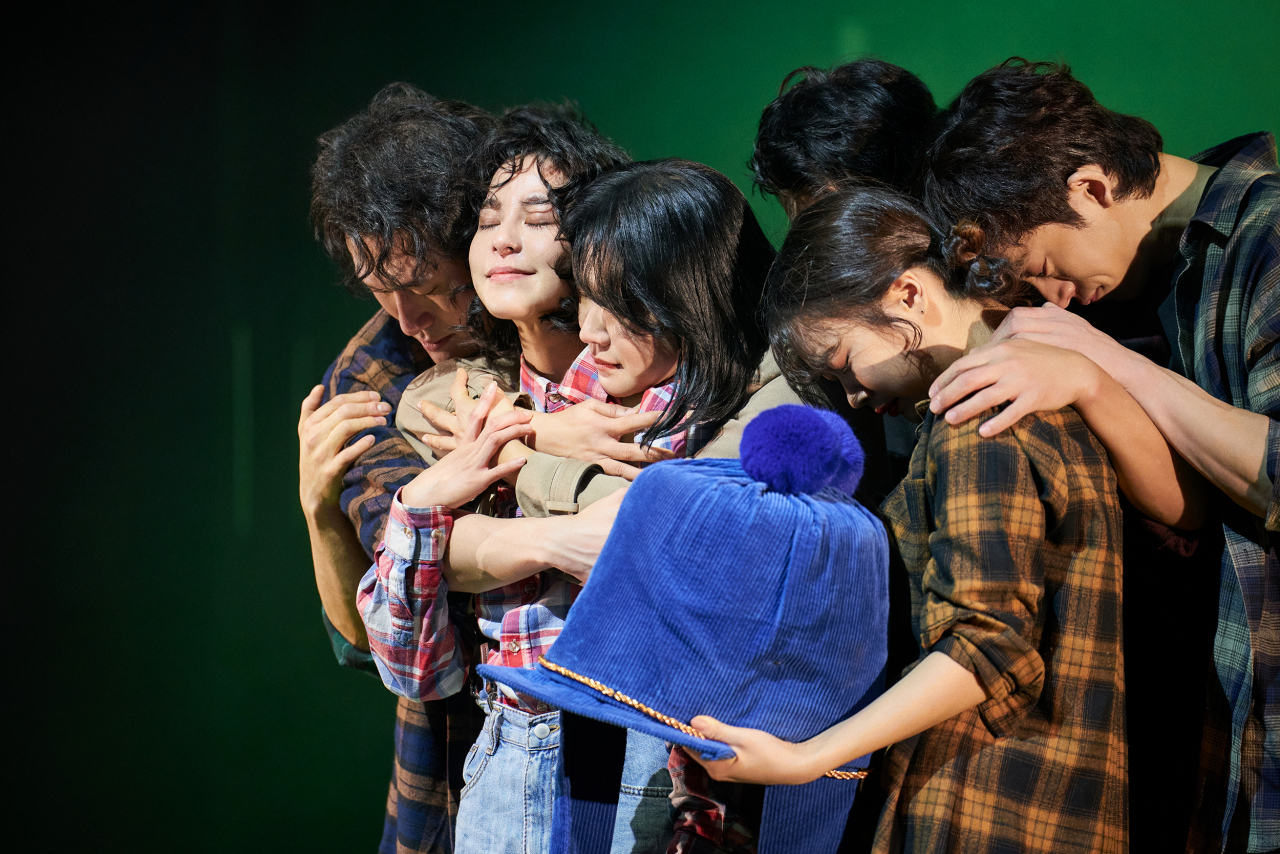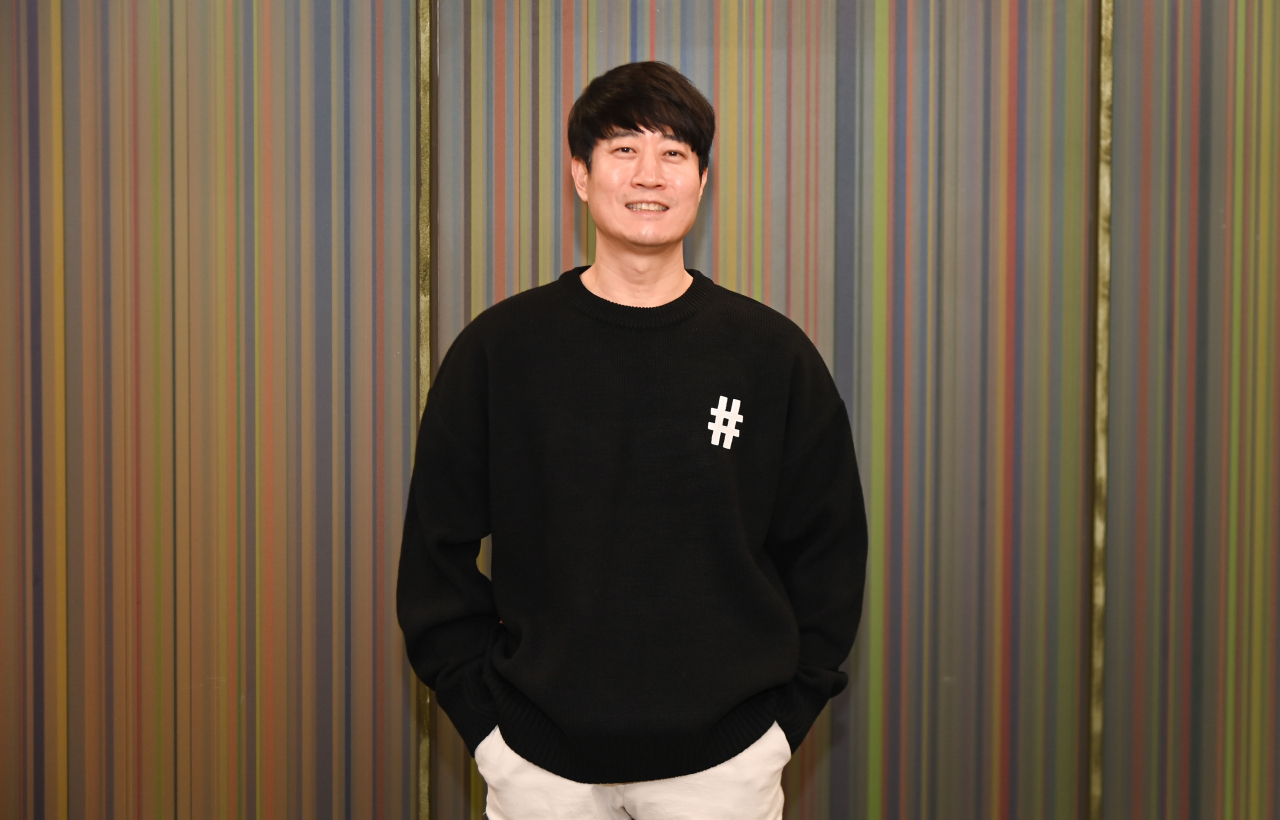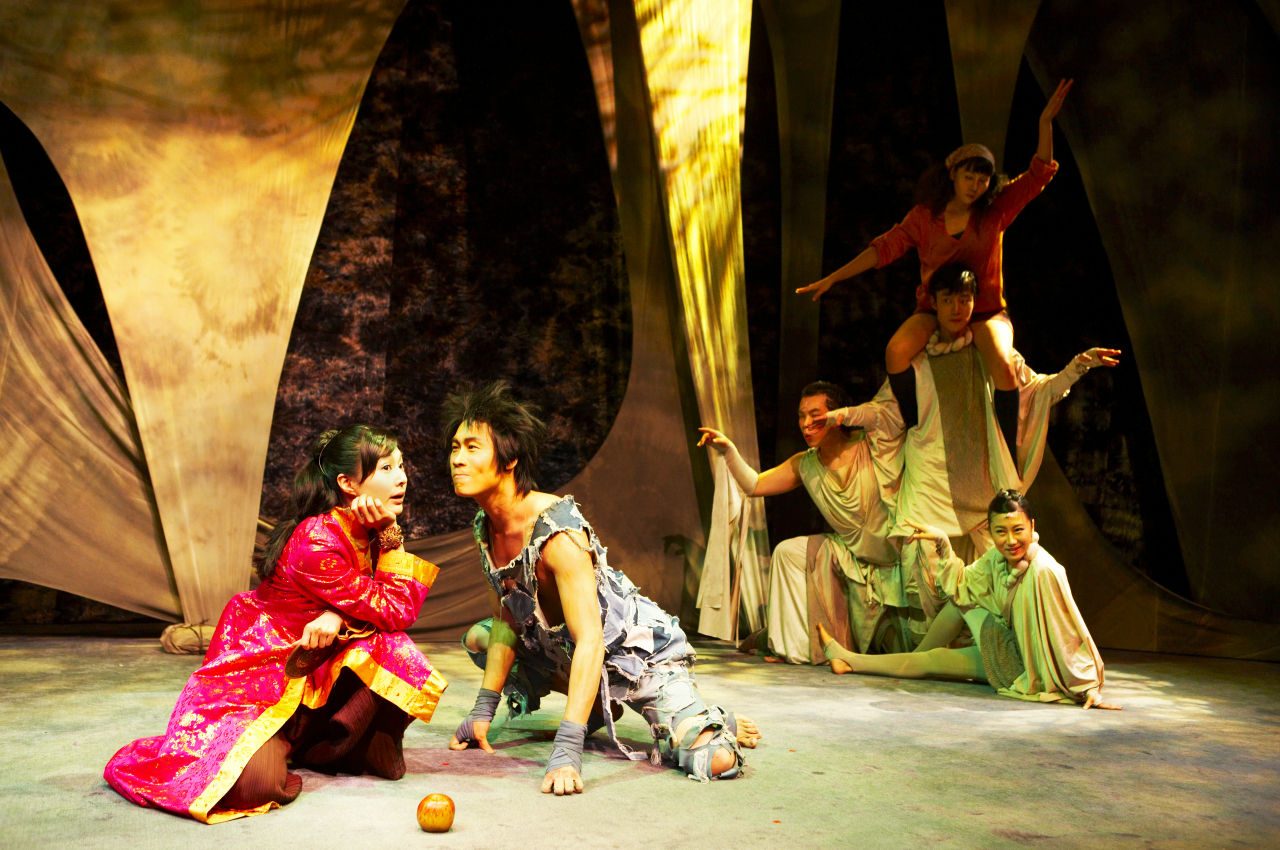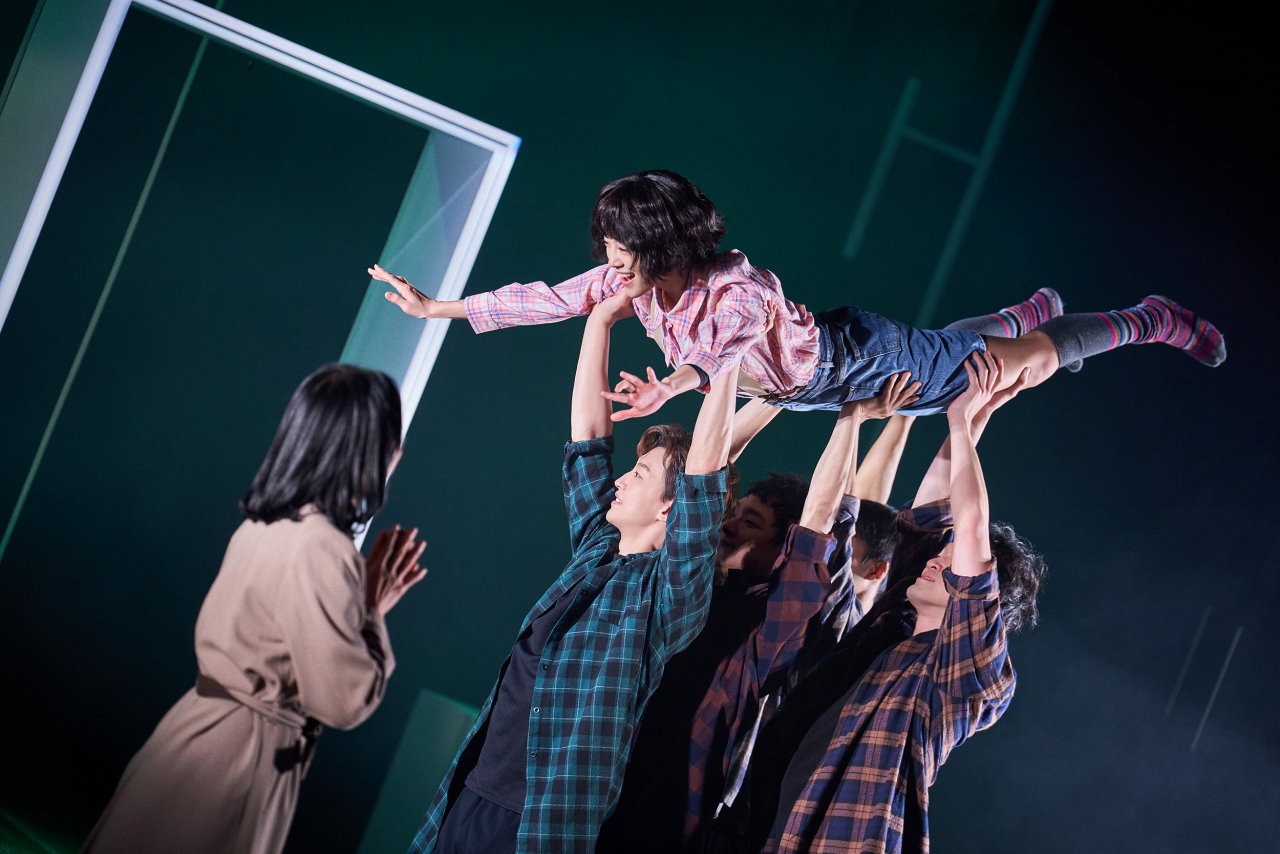[Herald Interview] Theater Ganda marks 20th Anniversary with yearlong parade of original productions
Min Jun-ho, founder and chief producer of theater, hopes for diverse physical performances
By Hwang Dong-heePublished : Feb. 19, 2024 - 18:16

In Korean, the word "ganda" means "to go." Yet, the name of this 20-year-old South Korean theater troupe also carries a dual meaning, signifying its commitment to creating compact ("gan" in Hanja) and diverse ("da" in Hanja) performances.
Theatre Ganda is set to showcase a series of the company's most notable works, one after another, until early 2025, in a rare and precious moment for a theater group as it marks its 20th anniversary with a parade of original productions.
At the helm of this theatrical celebration is Min Jun-ho, 47, the founder and producer of Theater Ganda, who agrees that surviving two decades in the theater industry is no small feat.
The first act of the 20th-anniversary parade was the physical theater production, "Temple," which ran at Daehakro, Seoul, until Sunday, starring idol-turned-actor Kim Se-jong as the main character, Grandin.
Kim made her theatrical debut with this production, which follows the life story of Temple Grandin, an animal behaviorist born with autism who triumphed over adversity.
“I think ‘Temple’ best represents the identity of Ganda,” said Min during a recent interview with The Korea Herald.
Premiered in October 2020, "Temple" stands out as a distinctive physical theater piece that incorporates body movements, singing, dancing and dialogue.
Except for the protagonist, the other actors take on multiple roles, at times embodying animals such as cows and horses, or inanimate objects like telephones, and even embodying the concept of fear itself.

Star alumni to participate in parade
Ganda's repertoire includes a mix of physical theater and realism plays, offering a diverse experience for audiences. From March 15 to May 26, a realism play entitled "Back Then, Today" will grace the stage, followed by the physical theater piece "Flower, Passing Stars," the play "Me and Grandfather," and another round of physical theater, "Hot Summer."
"In truth, celebrating such an anniversary is a bit embarrassing, but it is such a joy that we achieved this milestone together, so we decided to organize a 20th-anniversary performance parade,” said Min.
"We have been lucky. I guess it's because we operate independently as individual actors as well and come together for plays, like a project group system. This has enabled us to endure and thrive for 20 years."

Min emphasized the importance of seizing opportunities outside the theater realm.
"I always tell my actors that if opportunities in movies or drama series come up, they must take them, because that’s how we can sustain ourselves and make a living.”
Many renowned actors have kick-started their careers at Ganda, notably including Jin Sun-kyu from the acclaimed crime films "The Outlaws" (2017) and "Extreme Job" (2019); Lee Hee-joon from Netflix's "A Killer's Paradox" (2024), "Badland Hunters" (2024) and "The Man Standing Next" (2020); Kim Ji-hyun from Netflix's series "D.P. 2" (2023); and veteran actor Kim Min-jae, among others. All of these actors are original members of Ganda, with Jin and Lee having previously starred in the premiere of "Behind the Mirror."
Each of the alumni plans to participate either individually or collaboratively.

Physical theater as Ganda’s identity
Min expressed his initial desire to stage “Behind the Mirror,” the production that sparked the birth of Ganda, with the original cast members to kick off the yearlong parade.
“Behind the Mirror” (“Story of the Mirror Princess Pyeonggang” in Korean), another physical theater production, reinterprets the traditional story of Princess Pyeonggang who married a commoner, Gen. On Dal.
“But our actors have aged, and they were busy with movies or dramas. It is such a complicated play (physically) that all the actors need to train and practice together for over three months to synchronize their movements.”
Min developed the prototype for the piece as part of a school project at the Korea National University of Arts. After his graduation, he established Ganda in 2004 and introduced the show as the troupe's inaugural production.
Min explained that genre discussions have been ongoing since the troupe's inception with "Behind the Mirror." He is still uncertain how to classify the genre of the theater's productions.
“I once said ‘Temple is not ‘exactly’ a form of physical theater, but there isn’t a better word to describe it. I think Ganda’s shows are like a stepping stone (between a typical play and a physical theater play), blending improvisation, theater, dance, music, physical theater and musical elements. All these unexpected elements come together, (and) as a whole, it feels entirely okay.”
Physical theater creates its own excitement, according to Min.
“It makes you realize acting is a bodily movement, and creating movements is acting. Actors enjoy it because there is no preconceived notion of what physical theater should be, making it an enjoyable experience," he explained.
"I hope more actors and dancers will emerge and create their own physical pieces. With a broader range of performances, the reasons for attending (such shows) will also increase. I hope diverse plays become more popular and thrive," he added.





![[Weekender] How DDP emerged as an icon of Seoul](http://res.heraldm.com/phpwas/restmb_idxmake.php?idx=644&simg=/content/image/2024/04/25/20240425050915_0.jpg&u=)


![[Music in drama] An ode to childhood trauma](http://res.heraldm.com/phpwas/restmb_idxmake.php?idx=644&simg=/content/image/2024/04/25/20240425050929_0.jpg&u=)









![[Herald Interview] Mistakes turn into blessings in street performance, director says](http://res.heraldm.com/phpwas/restmb_idxmake.php?idx=652&simg=/content/image/2024/04/28/20240428050150_0.jpg&u=20240428174656)
